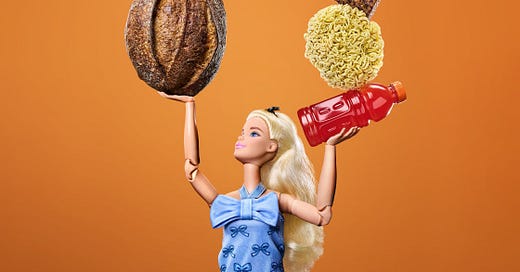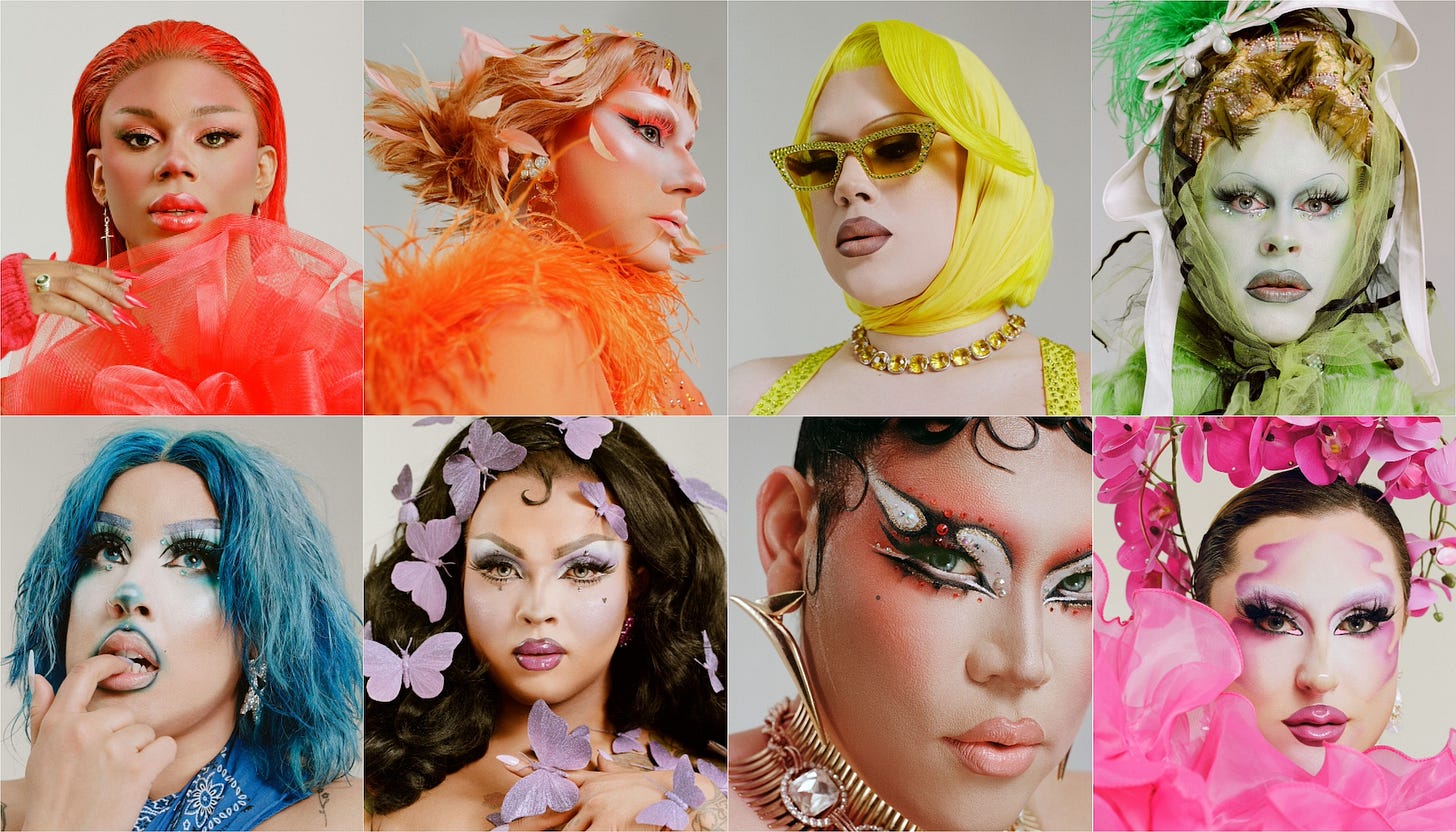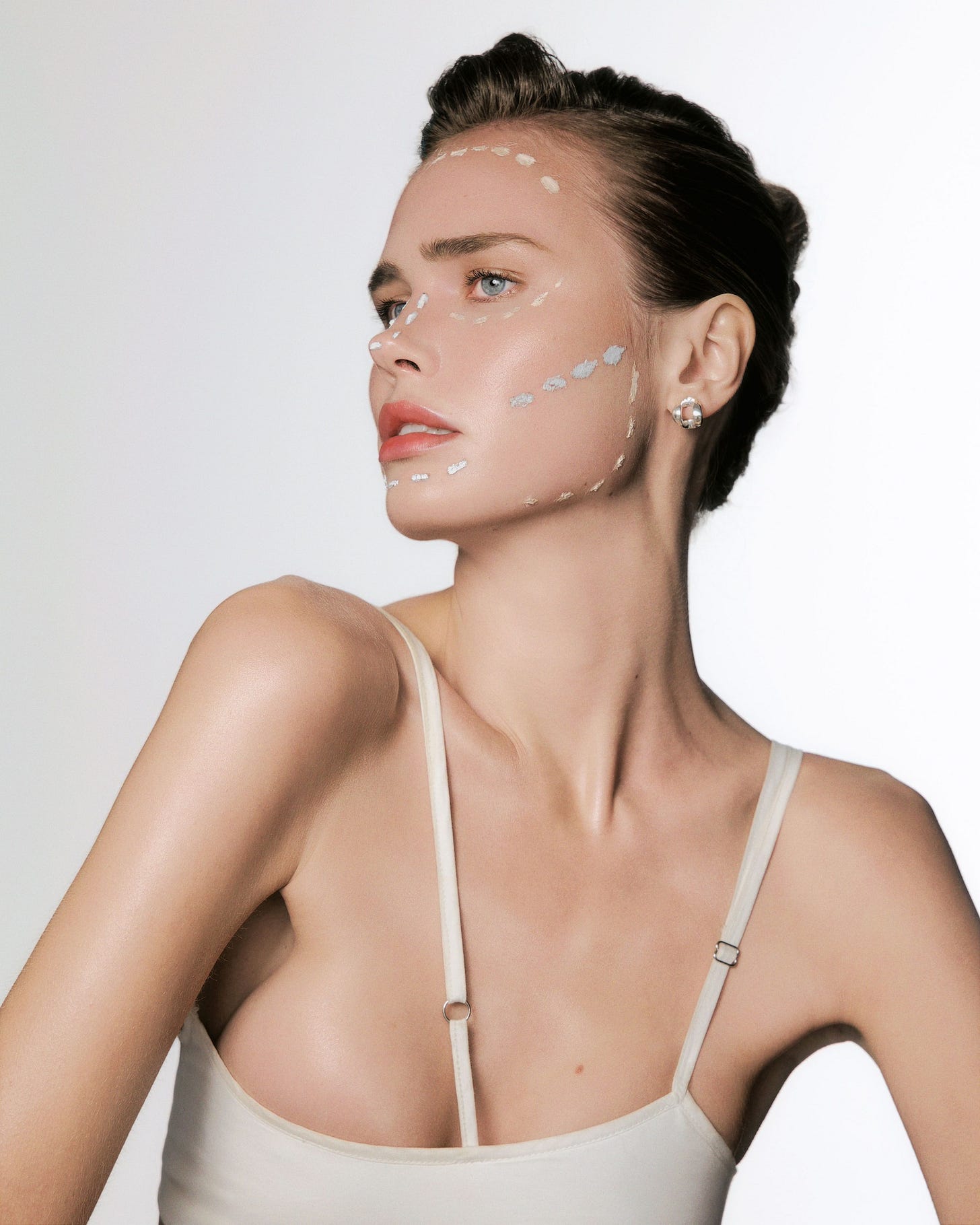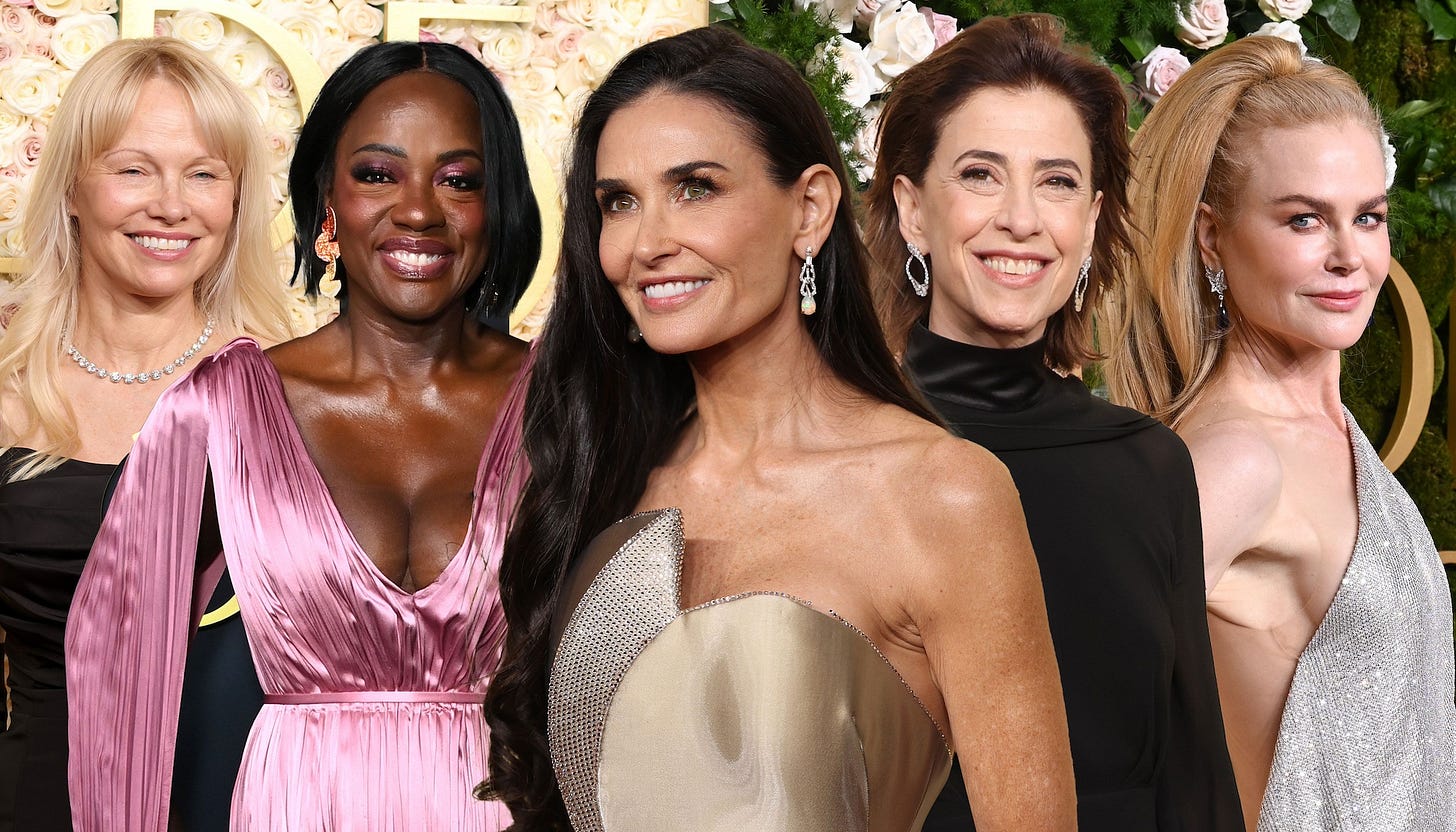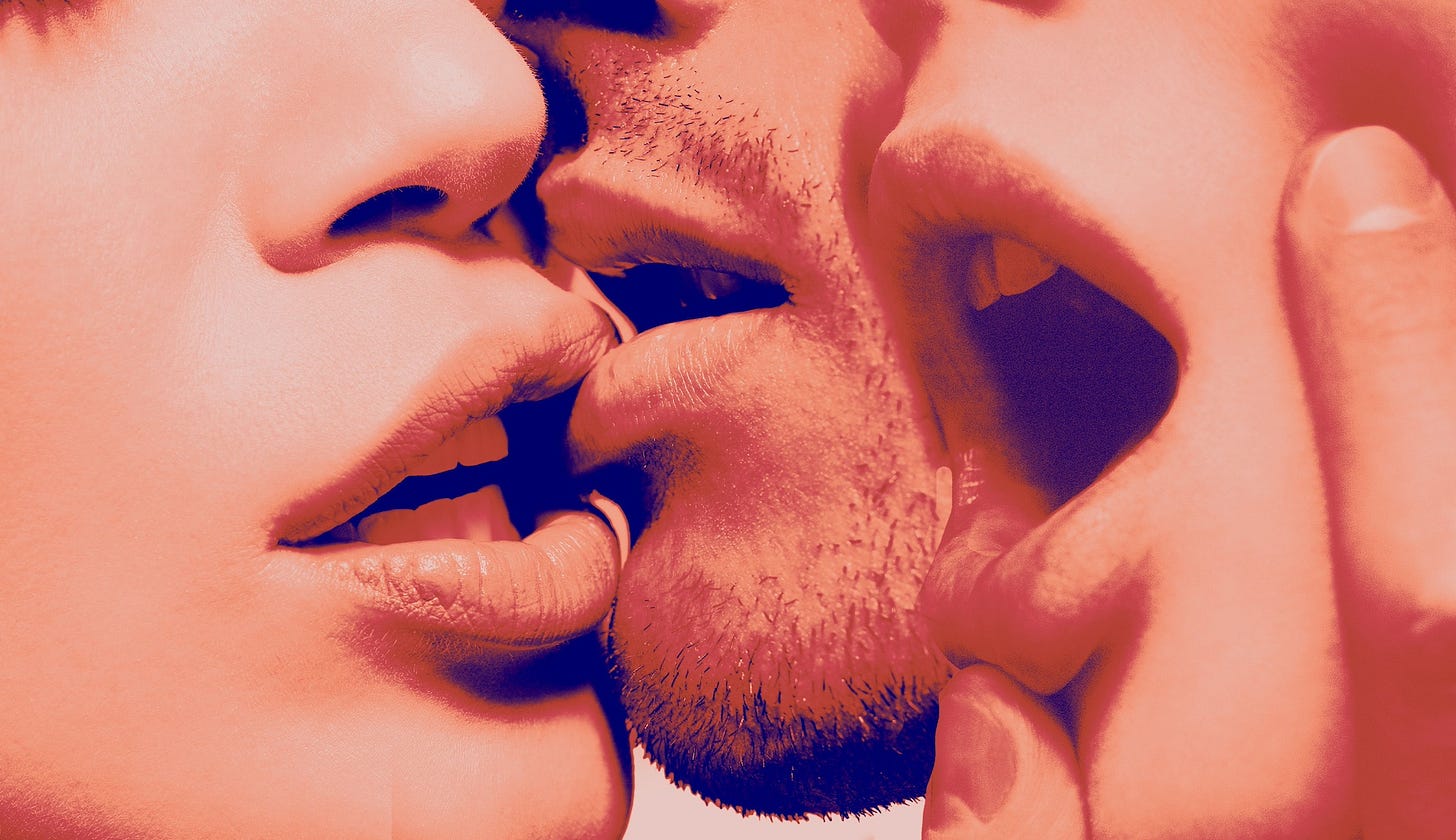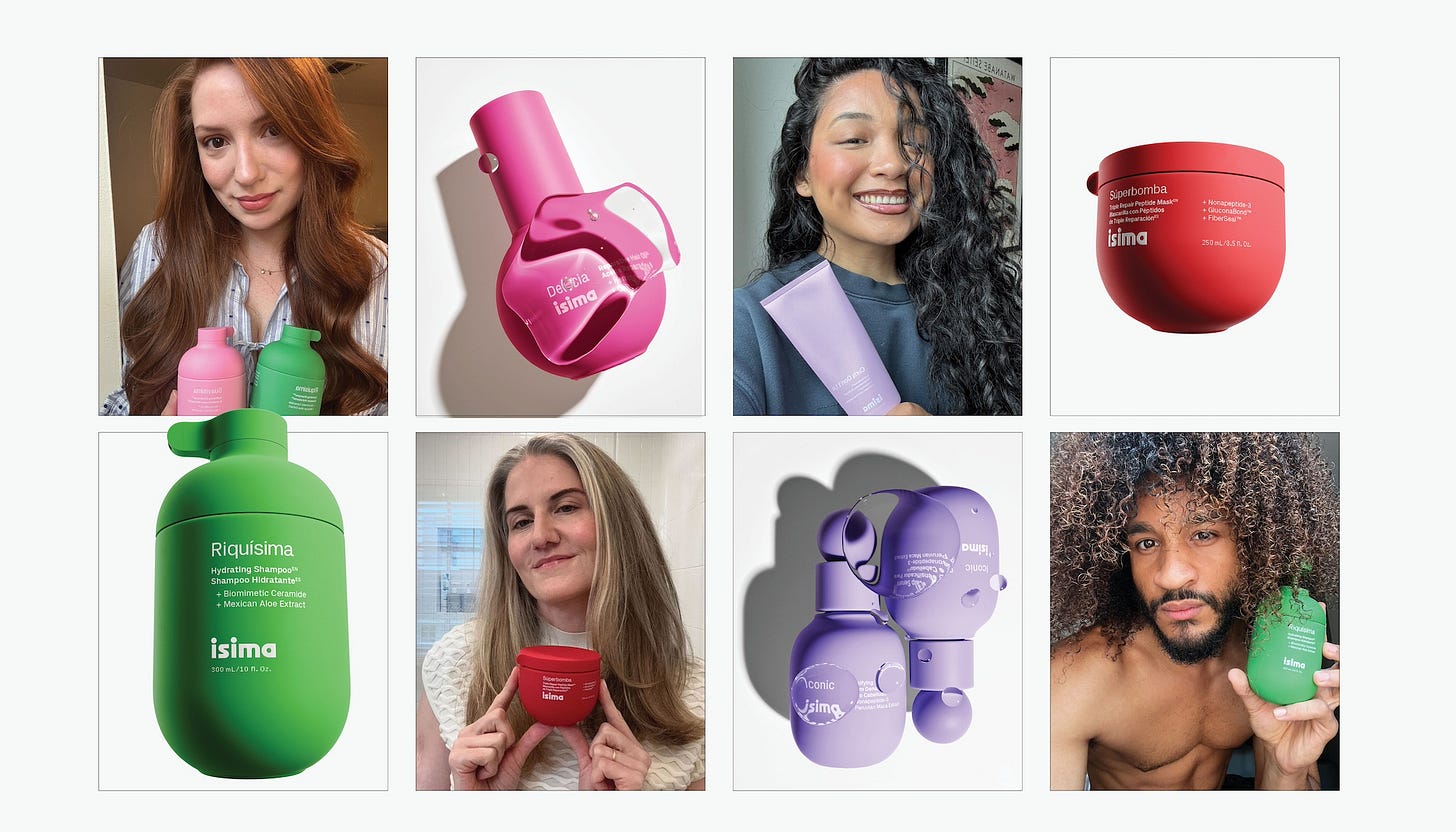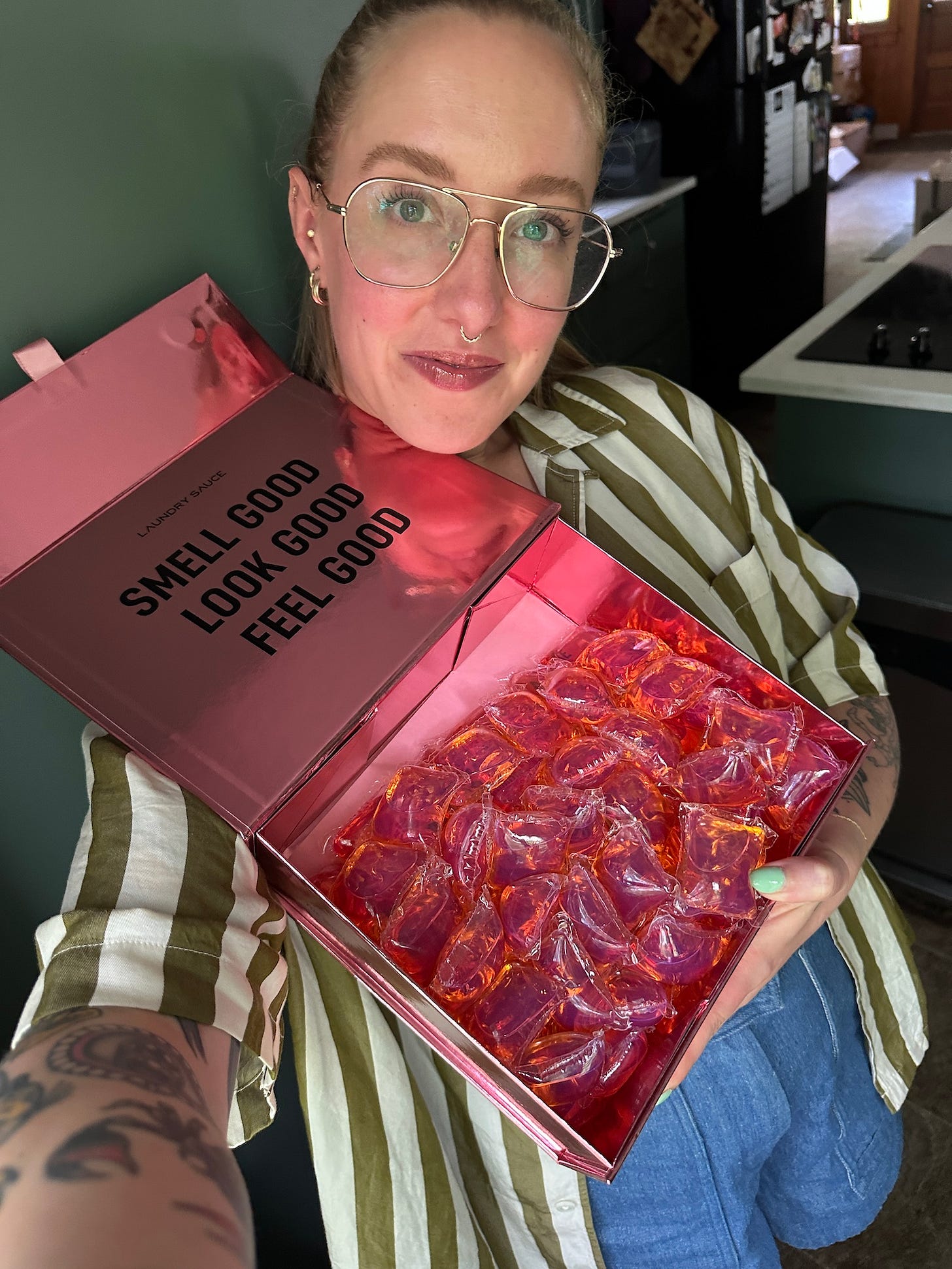The “Ultra-Processed Foods” Convo Is Just Another “Clean Beauty” Situation
Plus, beautification facelifts, the problem with undetectable procedures, and a joyful photoshoot for Pride.
SELF, Allure’s sister brand (we share an editor-in-chief and many other members of our social and creative teams), pissed off a very specific subset of people this week when they published a feature called “How the MAHA Food Agenda Threatens to Set Women Back Decades.” The story, by SELF’s senior health writer Erica Sloan, explores Robert F. Kennedy Jr.’s war against ultra-processed foods (UPFs) and how the changes he and his supporters are urging people to make to their diets—preparing all meals from scratch, growing their own food, avoiding anything pre-packaged—puts additional pressure on moms to spend a lot more time and energy feeding their families…without offering the structural support that might give them the privilege to do so.
The whole feature is great and you should read it, but the part I want to talk about is the villainization of an entire category of food, UPFs. As Michael Hobbes and Aubrey Gordon, the hosts of the Maintenance Phase podcast, pointed out in their June 3 episode, there is no federally-regulated definition of the phrase “ultra-processed foods.” Colloquially, Hobbes said, we generally understand what it means when someone says they’re trying to cut processed foods out of their diet. But if we’re going to be passing laws restricting the sale of UPFs or making claims that this category of food poses health risks, we kinda need to agree on a very clear, very specific definition first. For what it’s worth, this does seem to be in the works—but if that definition is going to cover “anything made in an industrial setting,” then it’s lumping Twinkies and Spaghetti-Os in with store-bought bread and flavored yogurt, while the last two, Erica pointed out, “either don’t appear to impart any risk or even seem to benefit health in various studies that have teased out their individual effects.”
Does that sound… familiar to you? To me, it’s the same issue we ran into with the “natural” and “clean” beauty boom. Proponents tried to claim that entire categories of ingredients—like parabens and silicons—were bad for you, even though those categories contain many different ingredients that have a wide range of known risks and benefits. The terms natural and clean still aren’t regulated, but they have been used as marketing tools to imply a level of safety even though the so-called clean alternatives have often undergone less safety testing than the ingredients that’ve been used for decades. That’s not to say that they definitely are worse for you, but it’s irresponsible and misleading to claim they’re definitely better.
When I wrote “Did Clean Beauty Go Too Far?” in 2023, I got the same type of response that Erica is getting right now. Both of us have been accused of being in the pocket of big food/big beauty (we wish 🤑🤑🤑) and wanting all of our readers to eat/apply poison and die. In reality, both of these stories acknowledge that, yes, there should be more government-funded research and oversight in each of these industries, but what we have now is generally regarded as safe. Anyone telling you otherwise is usually trying to sell you something—whether that’s their small-batch beef tallow moisturizer or the idea that women should get back into the kitchen.
We Pledge Allegiance to the Drag
There is a lot of fear and anger surrounding this Pride Month. The ACLU is currently tracking the 588 anti-LGBTQ bills that have been making their way through state legislatures this year. One hundred and fourteen of them have been defeated, but 59 have passed into law and the other 415 still could too. (And, of course, this doesn’t count the laws that passed before 2025.) But I’m also still seeing plenty of displays of joy in the queer community, a type of resistance in a world that too often wishes for your invisibility. To celebrate this month, we ran a photo shoot organized by Jimi Urquiaga, also known as Missleidy Rodriguez, for which dozens of drag artists created looks inspired by the colors in the Pride Flag. It’s a tribute to the artist and drag queen Gilbert Baker, who designed the first Pride Flag in 1978. “Our job as gay people was to come out, to be visible, to live in the truth...," Baker later said in an interview. "A flag really fit that mission, because that’s a way of proclaiming your visibility or saying, ‘This is who I am!’”
Face Off
Over in facelift land, we’ve got two stories for you this week. One is a report from
about the rise of so-called “beautification facelifts.” These are facelifts for a slightly younger patient (most, Edgar reports, are in their 40s) who aren’t looking for a return to their old selves, but rather tweaks that make their current face just a bit more beautiful—at least, as the word is defined by Eurocentric, youth-prioritizing beauty standards.The results shown via after photos in that story are truly impressive and, to the untrained eye, probably undetectable. And that,
argues in our second aesthetics-focused story of the week (How Plastic Surgery’s So-Called “Undetectable” Era Further Stigmatizes Aging), is sort of the issue. There’s nothing wrong with getting plastic surgery or injectables, the latter of which Yong and I have both indulged in. The problem is when we start to forget what an unaltered face looks like and start slapping the “naturally beautiful” label on the ones that have been tweaked. “If everyone suddenly looks so ‘undetectably’ flawless, our perception of aging becomes skewed, potentially causing anxiety and dread when we see any sign of change in a naturally maturing body,” she wrote. “It makes all of these plastic surgery ‘tweaks’ seem more compelling and even urgent for those who can afford them—and more defeating for those who can’t.”Dirty Words
In her newsletter
, revisited an Allure story from earlier this year that really got people riled up. After the Golden Globes in January, wrote an ode to all the women over 50 who made triumphant appearances (and wins) at the award show, with the headline “Old Lady Energy Flexed Its Well-Toned Muscles at the Golden Globes.” As Kirbie recounts, people were pissed. “Internally, I became immediately defensive. ‘OLD?’” she wrote. “These women don’t look old. They don’t act old, in a traditional sense. Hell, are they old at all? But then I sat with it—and I read the story itself. (Something not a lot of people do these days.)” The rest of her essay is a reflection on “old” as a four-letter word and whether we’ll ever be able to see it as a neutral adjective to describe someone who is no longer a young person. It’s a great read; go check it out.Party Favor
If you’re feeling down about the way you look, perhaps, instead of going under the knife, you just need to go to more sex parties. That’s what Laura Delarato proposes in an essay this week, after attending them helped her get past some of her own body-related hangups. “Being surrounded by a variety of bodies, all held under an erotic lens without the pressure of performance, makes everything feel more grounded,” she wrote. “It’s like that advice to picture everyone naked before giving a presentation—but in this case, you’re actually naked and part of the crowd.”
Curls Don’t Lie
As night follows day, a celebrity launched a new brand this week. But here’s what’s not so routine: This one is actually quite good. Shakira’s Isima (as in, bellísima or grandísima or riquísima) is a line of products for, as she puts it, “complicated hair—porous, dry-over-processed, curly, wavy.” We gathered up six Allure editors whose hair fits the bill to put it to the test.
Spa Day
If you haven’t watched John Oliver’s segment on the growing (and growing sketchier) business of med spas, I highly recommend it. There’s a little Allure shoutout for our 2019 reporting on the rise of fake fillers being bought and sold online, and a great bit about the confusing language around “approved” medical devices. (As Oliver puts it: “FDA cleared” is essentially one step above the FDA declaring “this exists!”) Allure has more on med spas coming later this summer, so, as they say, watch this space.
This week, I can’t stop talking about…
Laundry Sauce Egyptian Rose Laundry Detergent Pods
It’s a fairly impressive feat to make laundry detergent seem sexy, but Laundry Sauce is doing it. The brand positions its products similarly to how a luxury fragrance brand might sell you an EDP: the imagery focuses on the notes in the detergent’s scent, not so much on how clean it gets your clothes. And I’ll tell you what: that worked on me. When the brand showed up in my inbox offering samples, I called some in right away—and am pleased to report this stuff is good. I’m partial to the Egyptian Rose scent, which lingers on my clothes for days after I wash them.


